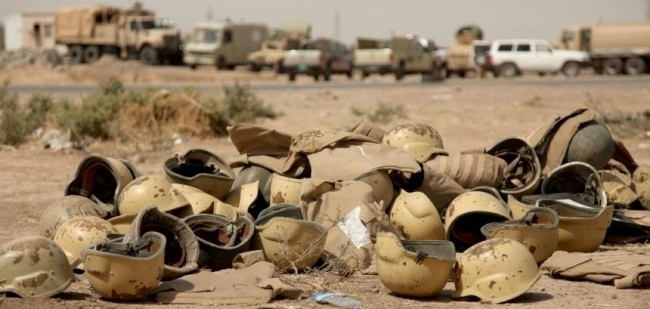Al-Ahad TV cameraman Khaled Ali Hamada was killed today in Diyala, northeast of Baghdad, becoming the first media fatality since the start of an offensive in the north and west of Iraq two weeks ago by Islamist rebels, including the Jihadi group Islamic State in Iraq and Levant (ISIS) allied with Sunni tribal groups.
An Al-Ahad TV reporter Moataz Jamil Hassan was badly injured. Based in Diyala, Al-Ahad TV is linked to the Shiite Islamist group Kutla Asaib Ahl Al-Haq.
“We urge all parties to the conflict to ensure that journalists are protected,” Reporters Without Borders said. “At the same time, news media and journalists must demonstrate their independence and professionalism by not fuelling political and sectarian conflicts.”
The obligation to protect journalists under Article 79 of Additional Protocol I of the 1949 Geneva Conventions and UN Security Council Resolution 1738 of 2006 must be respected.
Al-Sharqiya News reporter Minas Al-Souhil and his cameraman were meanwhile arrested yesterday by security forces in Baghdad although they had an authorization issued by Baghdad operations command.
Al-Sharqiya’s correspondent in Diyala province, Halmi Kamal, was kidnapped and held by armed individuals for several hours yesterday in the provincial capital of Baqubah (55 km northeast of Baghdad).
In Mosul, ISIS fighters have seized control of Al-Mosuliya TV, Sama Al-Mosul and Al-Ghad and have closed down a number of other local TV stations. In Tikrit, they have controlled Salaheddin TV since late December (LINK).
Social networks and telecommunications
The Iraqi authorities have meanwhile taken a number of measures affecting communications in response to the ISIS offensive.
At the government’s behest, the telecom companies Asiacell and (Kurdistan-based) Norooz Telecom announced the suspension of their services in the cities of Kirkuk and Mosul on 13 June. The Internet has also been hit. The communications ministry has asked Internet Service Providers to block certain social networks such as Facebook, Twitter and YouTube and other services including Skype, Viber and Whatsapp.
The communications ministry said yesterday that this decision had been taken because ISIS was using social networks. The day before, Twitter closed the accounts that ISIS had opened.
In the government’s sights
The government also has Al-Arabiya and Al-Hadath, two Saudi-funded TV stations that broadcast from the United Arab Emirates, in its sights.
On 14 June, Prime Minister Nouri Al-Maliki openly threatened to close these stations’ Iraq-based bureaux because of their allegedly biased coverage and to ban their staff from operating in the country.
Al-Arabiya and Al-Hadath had reported the statements of certain Iraqi politicians calling for Maliki’s resignation and the creation of a transitional government to resolve the crisis. Al-Arabiya also provided live coverage of the rebel attacks and advances, highlighting the rout of the Iraqi army.
Mohamed Abdel Jabar Al-Shabout, the director for radio and TV at Iraqi Media Network (IMN), warned yesterday that he would not hesitate to sideline media that do not support the government and armed forces and broadcast false information. At the same time, IMN would be open to independent journalists who resigned from Al-Arabiya and Al-Hadath, he added.
All of the staff of the TV station ANB resigned on 14 June in protest against the alleged lack of neutrality of ANB’s coverage of the latest events, especially the fighting between the regular army and ISIS. ANB owner Nazmi Waji is a former petroleum ministry employee from Kirkuk province who is accused of fraud and embezzlement.
......


